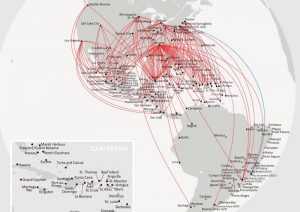As workers of the former Karuturi flower farm in Naivasha, Kenya, await the outcome of a new appeal of the long-running court case and receivership, the Karuturi Group held an AGM in India and passed new resolutions to turn round the company.
The Bombay Stock Exchange-listed Karuturi, the world’s largest producer of cut roses, had published an annual report ahead of the AGM. According to the notice and results of the AGM, the Group proposed to increase the authorized share capital of the company to meet their long-term capital requirements.
We had a great time interacting with our shareholders yesterday at our AGM! pic.twitter.com/dqzrV4UTNc
— Karuturi Global (@Karuturi_KGL) September 30, 2018
Karuturi also plans to allocate convertible warrants to new shareholders who are; IBelive Fitness Solutions who may end with 10% if they exercise all options, Eye-3 Info Media who may end with 8% and Srinivasa Retail who will end with 14.3%. Prior to the AGM, the three had no shares in the company while the promoters of Karuturi had 25% and other public shareholders had 75%, including Deutsche Bank with 5%.
Shareholders also voted to appoint Messrs K G Rao and Co as auditors of the company and the notes showed that the previous year’s figures had not been audited by the current year auditors who had then provided a qualified opinion due to non-filing of some tax returns by the holding company. Another resolution was to ratify the appointment of the daughter of the Chairman and MD Sai Rama Karuturi, who had joined the board in September 2017. The resolutions were all passed.
The company has primary borrowings with Axis Bank in India (third largest private bank in the country), ICICI Bank of India, Axis Dubai, and smaller borrowings at the Commercial Bank of Ethiopia, Zemen Bank and Lion Bank in Ethiopia.
The accounts provided an (incorrect) link to the long-running Kenya bank case and receivership in Kenya. There are mentions in the notes that Karuturi Kenya was wound up by a court order of March 2016 and the company did not have any outstanding tax demands in Kenya or Ethiopia
In a statement, the Board Chairman wrote that the Kenya farm should soon be back in the company’s possession following workers’ protests to various government authorities and media attention fueled by Kenyans on Twitter. On Ethiopia, he welcomed the new leadership of Prime Minister Dr. Abiy Ahmed and mentioned that the company had withdrawn all cases against the government of Ethiopia, paid compensation to the workers, and entered new lease agreements with a view to resuming operations in mid-2019.

